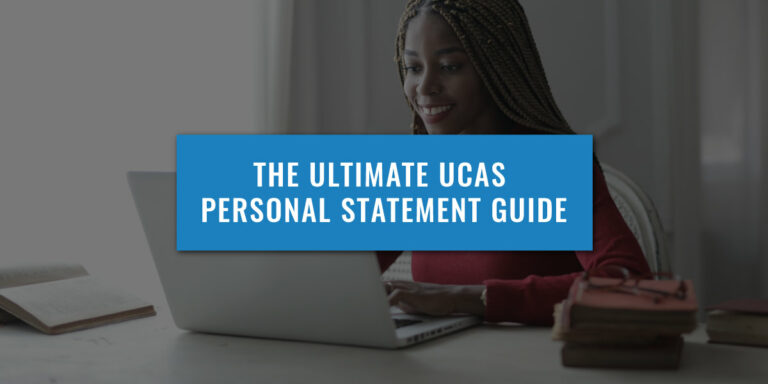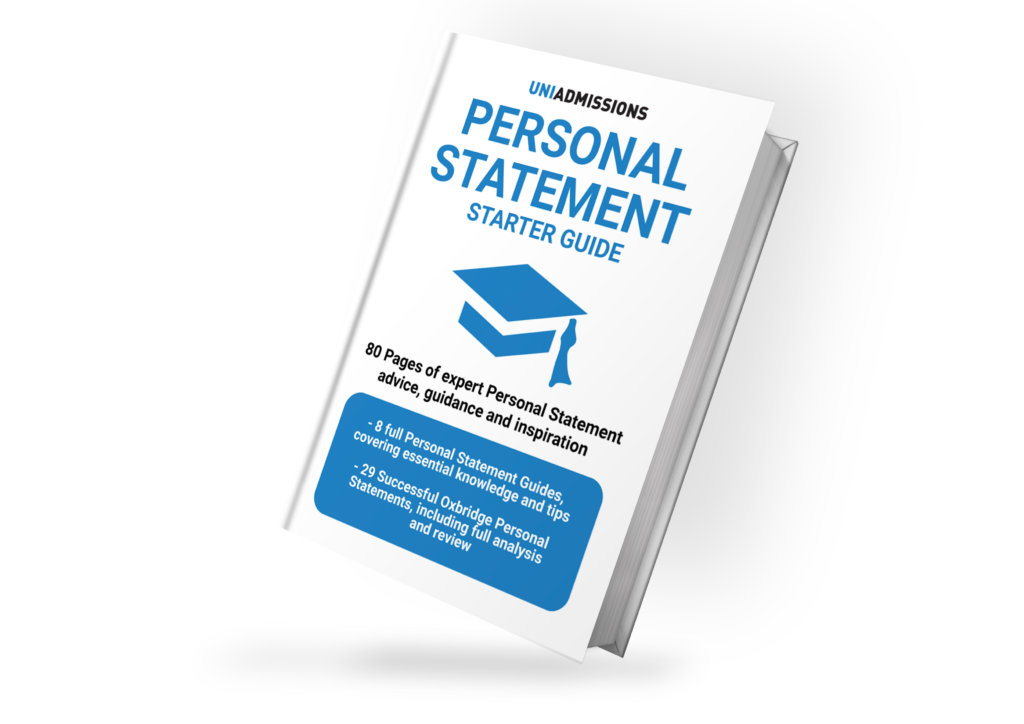Welcome to our popular Personal Statement series where we present a successful Personal Statement, and our Oxbridge Tutors provide their feedback on it.
Today, we are looking through a Law with French Law applicant’s Personal Statement that helped secure a place at Oxford University. The Law with Law Studies in Europe course at Oxford offers a world-class opportunity to develop a diverse set of skills which you will be able to apply in many different situations.
Read on to see how this candidate wrote a Personal Statement that helped secure their place on a reputable degree.
NEW PERSONAL STATEMENT FORMAT
As of 2025, UCAS Personal Statements will be presented with a new three-question format. Be aware that the Personal Statement featured in this guide was written in the previous free-form format. Despite this, the example will still be beneficial to read as the content included remains the same as what you should aim to write in your own work.
When reading this example, think about which question each paragraph answers. To learn more about the Personal Statement changes, read our dedicated guide to the new Personal Statements here.
Here’s a breakdown of the Personal Statement:
CHARACTERS
3,973
WORDS
630
SUCCESSFUL?
5/5
The universities this candidate applied to were the following:
CAMBRIDGE
OFFER
DURHAM
OFFER
WARWICK
OFFER
BRISTOL
OFFER
EXETER
OFFER
Enrolling on our Oxford Law comprehensive Programme will give you access to Personal Statement redrafts.
Your tutor will give you actionable feedback with insider tips on how to improve and make your Personal Statement Oxbridge quality for the best chances of success.
Law with French Law Personal Statement
The way in which the British legal system both reflects and sculpts our constantly changing society fascinates me. Most recently, Tony Nicklinson’s fight for the right to die, the pivotal precedent his case set and the legal challenge presented to ethical views exemplified why I want to read and, ultimately, practise law.
The role of the media in extradition cases such as Julian Assange and Abu Qatada, and Helena Kennedy’s ‘Just Law’, made me aware of how extradition can infringe people’s rights. The European Arrest Warrant has the ability seriously to undermine the right to freedom, allowing extradition without evidence previously examined in court, as in the case of retired judge Colin Dines, who was extradited to Italy and spent 18 months in jail before coming to trial.
Work placements have widened my interest; a case of suspected fraud at Dickins Hopgood Chidley LLP Solicitors (in which the law was used legitimately) demonstrated the law’s ability to restrict a morally correct outcome. This prompted my exploration of jurisprudence, the philosophy of law and varying theories on the link between law and morality. Dworkin’s ‘Law’s Empire’ offered particular insight; moral values already exist within the law as unwritten ‘principles’ and ‘policies’, but it is judges who ultimately reveal the values to which our legal system is committed. In a recent critical essay discussing the extent to which British moral values are included in our laws, I combined research – such as Finnis’ distinctive theory derived from the question of what constitutes a worthwhile, desirable life – with my own evaluations on how morality enters legal decisions, one possibility being the jury.
Observing court procedures and the complexities of different cases (for example, cases of appeal at the Royal Courts of Justice) offered me a first-hand understanding of Dworkin’s theory of law as integrity. The intricacies peculiar to each case (such as a case of Count 2 rape re-classified by the Judge as Count 1) the tiers of argument and the clarity of reasoning behind each judgment re-ignited my enthusiasm to pursue a legal career. A Bristol Crown Court trial proved similarly interesting when one defendant changed his plea to guilty, radically affecting the other defendant (pleading not guilty)and requiring one barrister significantly to change his argument. Watching techniques in practice I had learnt during a mock trial at a ‘Debate Chamber’ master class confirmed how challenging, unpredictable and immediate law can be. It also motivated me to improve vital skills in creating a spontaneous argument without losing the importance of precision and research.
My love for the French language has grown immensely over the past year whilst reading both classical and more modern French novels, particularly enjoying Sagan’s ‘Bonjour Tristesse’ and Claudel’s ‘La Petite Fille de Monsier Linh’. Work experience at Hill Hofstetter Ltd (with European business links) illustrated how valuable a second language and international awareness is to a law firm; this prompted my search for the opportunity to spend a year in France as part of my degree.
Cross-disciplinary A levels and various co-curricular interests have helped me hone transferable skills well-suited to a law degree. Maths has developed problem-solving and logical aptitudes; analysis of historical sources has advanced my ability to formulate a structured argument, and my knowledge of the genesis of English law. Cicero’s ‘In Verrem’ has heightened my appreciation of the origins of our current legal system, and was made more exciting by comparing ancient techniques to those I witnessed in court, with many (such as speaking directly to the jury) still relevant.
My motivation has always been to maintain top grades alongside involvement in a wide range of activities: I now want to push this academic focus to a higher level and merge all areas of interest into one solid field of specialism and expertise.
For more inspiration, take a look through our other successful Personal Statement analysis articles:
Download our Free Personal Statement Starter Guide
Good Points Of The Personal Statement
The personal statement opens with a topical example, giving the impression that the student takes interest in legal issues from the outset. Importantly, the introduction is conscious to mention the student’s desire to read and practice law – setting up an academic interest from the beginning. The student continues to mention specific legal examples throughout, emphasising this genuine interest. When talking about their legal work experience, the student shows how this progressed back into fostering a specific academic interest in jurisprudence; before then giving what they learned from this study practical application. Such interplay between work experience and academics is highly impressive. The student’s current subjects of study are given clear links to law, and the punchy ending is effective both stylistically and in emphasising the student’s strong personal attributes.
Bad Points Of The Personal Statement
The only area in which slight improvement could be made is the discussion of the student’s French interests. The application is being made to study Law and French Law, and so adding a legal discussion in the paragraph concerning their French interests would have been beneficial.
UniAdmissions Overall Score:
★ ★ ★ ★ ☆
This personal statement is highly impressive. The student capably links everything back to the study or application of law, and this is precisely what will impress academic institutions. The student includes aspects of current legal affairs, specific topics of legal interest, and examples of engaging with law at every available opportunity. It is unsurprising that this personal statement was well received.
This Personal Statement for Law with French Law is a solid example of demonstrating a wealth of knowledge, motivation and interest, vital to Admissions Tutors.
Remember, at Oxford, these Admissions Tutors are often the people who will be teaching you for the next few years, so you need to appeal directly to them.
Check out our other successful personal statements and our expert guides on our Free Personal Statement Resources page.
Our expert tutors are on hand to help you craft the perfect Personal Statement for your Oxford Law application.
With our Oxford Law Premium Programme, we help you craft the perfect Personal Statement, score highly on the LNAT and teach you how to Interview effectively.
Discover our Oxford Law Premium Programme by clicking the button below to enrol and triple your chances of success.








